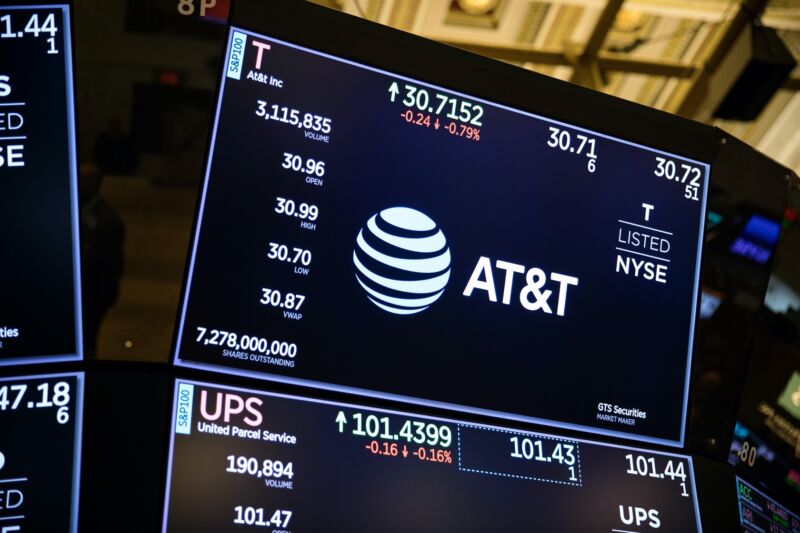
AT&T is reportedly moving ahead with its plan to sell DirecTV despite receiving bids that value the satellite division at less than one-third of the price AT&T paid for it.
AT&T bought DirecTV for $49 billion in 2015 and has lost seven million TV subscribers in the last two years. In late August, news broke that AT&T is trying to sell DirecTV to private-equity investors and that a deal could come in at less than $20 billion.
The New York Post yesterday provided an update on the sale process, writing that AT&T is pressing ahead with an auction even though it is “shaping up to be a fire sale.” The sale process is being handled for AT&T by Goldman Sachs.
“Opening bids from a coterie of buyout firms came in at around 3.5 times DirecTV’s roughly $4.5 billion of EBITDA, implying a valuation at around $15.75 billion, according to a source close to the process,” the Post article said. Despite the low first-round bids, AT&T “last week invited a handful of suitors into the second round of an auction of the struggling satellite-TV broadcaster,” the Post wrote.
Private-equity firms “are looking to milk the shrinking company for cash as DirecTV’s subscribers steadily flee to lower-priced streaming-video services like Netflix,” the Post wrote. AT&T could retain a minority stake in DirecTV after a sale. We contacted AT&T about the report and will update this article if we get a response.
“Serious destruction of value”
“It is very, very surprising they would sell DirecTV at such a low price—that’s a serious destruction of value,” a former AT&T executive told the Post. But it isn’t surprising that no one wants to buy DirecTV at anything close to the price AT&T paid five years ago, because the company has been reporting big customer losses each quarter for the past couple of years. After a Q2 2020 loss of 954,000 customers, AT&T was down to 18.41 million customers across DirecTV, U-verse TV, and AT&T-branded online TV services. That’s a loss of more than 7 million customers since mid-2018 when AT&T had 25.45 million subscribers in those categories.
DirecTV would likely be losing customers in any circumstance because of the trend toward cheaper online-streaming services, but AT&T has accelerated the decline by imposing price increases and reducing use of promotional offers that lower monthly costs for customers. AT&T is trying to improve its TV fortunes with the $15-per-month HBO Max, a result of AT&T’s 2018 acquisition of Time Warner Inc. for $85 billion (or $108 billion including Time Warner’s debt).
The purchases of DirecTV and Time Warner dramatically increased AT&T’s debt load. Under pressure from investors, AT&T in October 2019 promised to conduct a “disciplined review” of its portfolio and swore off “major acquisitions” for three years. AT&T’s long-term debt was $153.4 billion as of June 30, 2020, down from $168.5 billion in mid-2018.
https://arstechnica.com/?p=1712448

